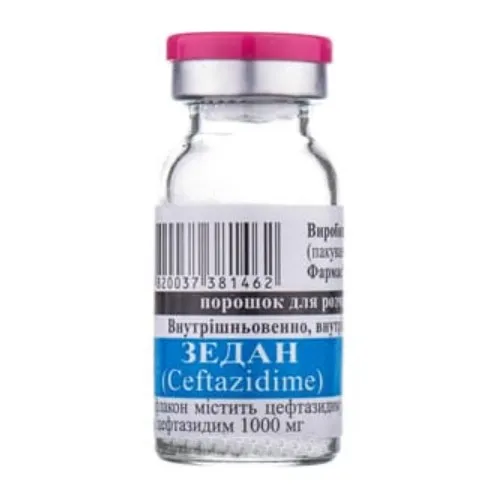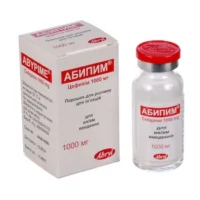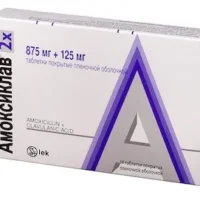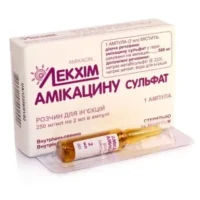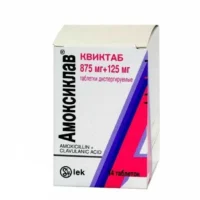Description
Zedan (Ceftazidime) Powder for Solution for Injections 1000 mg Vial №1
Ingredients
- Active ingredient: Ceftazidime
- Inactive ingredients may include sodium carbonate, sodium chloride, and edetate disodium
Dosage
Dosage: The usual adult dose is 1 to 6 grams daily, administered in divided doses every 8 to 12 hours, depending on the severity of the infection.
Indications
Indications: Zedan is indicated for the treatment of various bacterial infections, including respiratory tract infections, skin and skin structure infections, urinary tract infections, and intra-abdominal infections.
Contraindications
Contraindications: Zedan is contraindicated in patients with a known allergy to cephalosporin antibiotics.
Directions
Administration: Zedan is for intravenous use only. It should be reconstituted with a suitable diluent before administration.
Scientific Evidence
Zedan (Ceftazidime) has been extensively studied for its efficacy in treating various bacterial infections. Clinical trials have demonstrated the drug’s effectiveness in combating both gram-positive and gram-negative bacteria. Research published in the Journal of Antimicrobial Chemotherapy showed that Ceftazidime is a potent antibiotic with a broad spectrum of activity, making it a valuable option in the treatment of serious infections.
Additional Information
- Zedan is a third-generation cephalosporin antibiotic that works by inhibiting bacterial cell wall synthesis, leading to bacterial cell death.
- Considered a bactericidal antibiotic, it kills bacteria rather than just inhibiting their growth.
- Common side effects include diarrhea, nausea, and rash.
Pharmacological studies have shown that Ceftazidime has a high affinity for penicillin-binding proteins in bacterial cell walls, disrupting cell wall synthesis and leading to bacterial cell lysis. This mechanism of action makes Ceftazidime effective against a wide range of bacteria, including those resistant to other antibiotics.
Clinical trials comparing Ceftazidime to other antibiotics have shown its comparable efficacy and safety profile. A study published in the International Journal of Antimicrobial Agents found that Ceftazidime was as effective as other commonly used antibiotics in the treatment of severe bacterial infections, with a similar incidence of adverse reactions.

